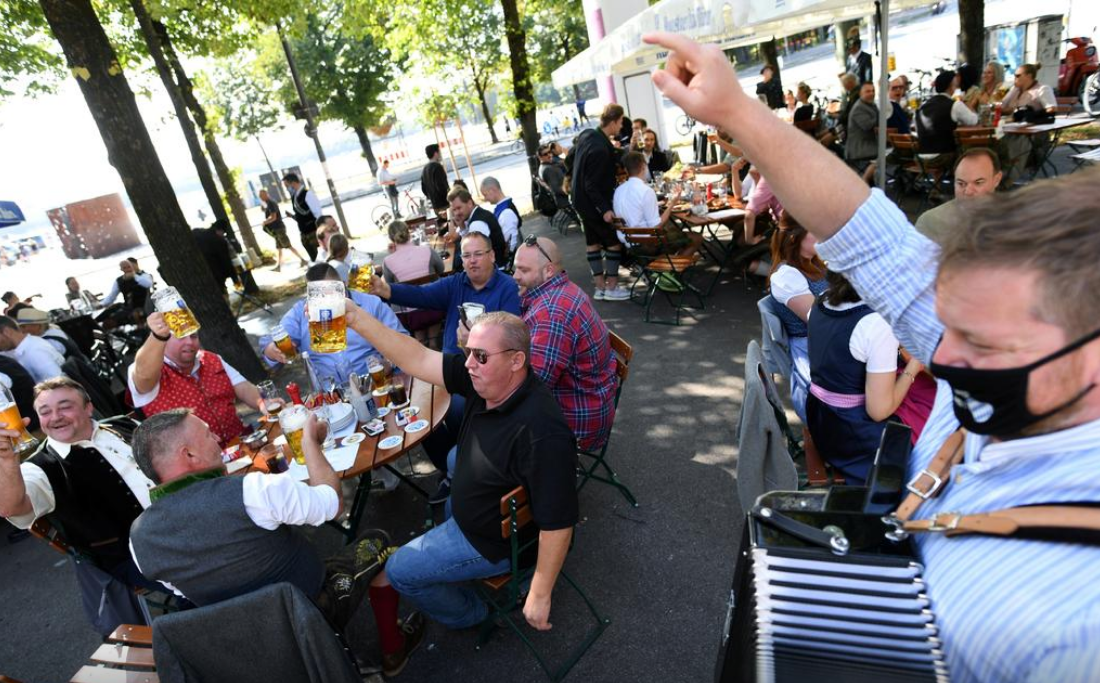
A server carries mugs during a barrel tapping at a beer garden near Theresienwiese where Oktoberfest would have started as COVID-19 continues in Munich, Germany, September 19, 2020. /Reuters
A server carries mugs during a barrel tapping at a beer garden near Theresienwiese where Oktoberfest would have started as COVID-19 continues in Munich, Germany, September 19, 2020. /Reuters
Innkeepers in Munich tapped their barrels on Saturday for revelers determined to make the most of a scaled-down Oktoberfest after the world's biggest beer festival was cancelled because of the coronavirus pandemic.
The specially brewed beer started flowing at midday at 54 pubs with locals in traditional lederhosen and dirndls sitting at spread out tables and, where possible, outside.
"It is a great alternative because at last we can celebrate the Oktoberfest a bit. It's not the same as usual, but still," said Christine Bachmeier, smiling at a table laden with liter glasses of beer at the famous Hofbraeuhaus.
However, it is a far cry from the six million visitors from all over the world who usually flock to the Bavarian capital to squeeze into tents with long wooden tables and benches to swig beer and sing and sway to catchy oompah band tunes.
Each year, the party-goers consume more than seven million liters of beer, more than 100 oxen and half a million chickens.

People raise their glasses at a beer garden barrel tapping near Theresienwiese in Munich, Germany, September 19, 2020. /Reuters
People raise their glasses at a beer garden barrel tapping near Theresienwiese in Munich, Germany, September 19, 2020. /Reuters
The first Oktoberfest was held in 1810 in honor of Bavarian Crown Prince Ludwig's marriage and now it typically brings Munich some 1.2 billion euros (1.42 billion U.S. dollars) in annual revenues, though not this year.
Still, in the pubs and sun-drenched gardens hosting the mini-Oktoberfest, guests put on a brave face.
"It's the best we can do in corona times," said visitor Harald Posler.
A spike in infections in Munich has increased worries about the coronavirus.
Although Germany has kept the number of COVID-19 cases and deaths lower than many of its European neighbors, the number of infections rose on Saturday by 2,297, the highest daily increase since the end of April, the Robert Koch Institute said.
That brings Germany's total tally of cases to 270,070, with 9,384 deaths, including six new fatalities reported on Saturday.
Source(s): Reuters